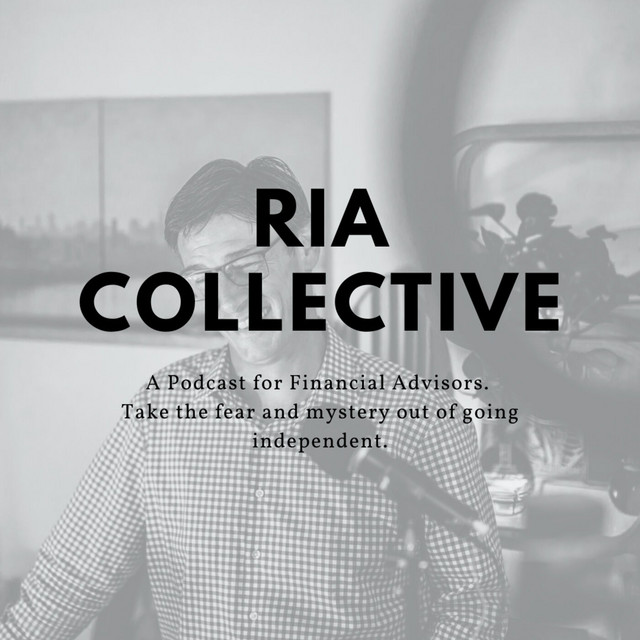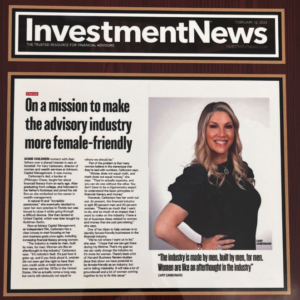Written by Cary Carbonaro | Read Original Post Here
Women are the sole or primary breadwinner in 16 percent of marriages today, compared with 5 percent in 1972, and in nearly a third of marriages, both spouses earn the same amount of income.1 In addition, by 2030, women are expected to control two-thirds of the nation’s wealth.2
These female breadwinners and economically empowered women are coming up against a fundamental issue with the financial services industry: It was created by men, for men. Women have come a long way since the Equal Credit Opportunity Act of 1974, but before then a bank could deny a credit card to a woman without a male cosigner. This long-ago idea that women couldn’t take responsibility for their own financial affairs is still haunting us. One survey showed that 40 percent of women say their advisors often ignore or dismiss what they have to say.3
Women Are Dealing with Financial Stress
As one of the few female advisors, I’ve made it my life’s work to try and change the industry to make it more female-friendly. The problem is more urgent than ever, with women saying the No. 1 word for how they feel about finances is “stress.”4 Advisors who are ready to listen and serve these women on their own terms are desperately needed.
In my own practice, I’ve seen some heartbreaking cases of financial abuse. The story of one client whose husband died stays with me. She had a young child, and she began dating this guy. He was financially abusive toward her and was spending all her money.
She calls me crying one day and says, ‘Can you come with me?’ I said, ‘Sure, what do you need?’ She needed to get her $100,000 Mercedes out of the impound lot after her boyfriend was driving drunk in it. I helped her find a therapist after that day at the impound. I always wonder what would have happened if I hadn’t been there. Women need that personal connection with their advisor.
It’s not just the right thing to do; there is an actual business case for tailoring financial services to women’s needs and preferences. We need to get this right and not just “pinkwash” it. One study showed that retaining Baby Boomer women as clients could result in one-third higher revenue potential, and firms that gain and retain younger women as clients could experience nearly four times faster revenue growth.2
My Common Thread
Women make up half the population, but we’re only 23 percent of Certified Financial Planners™.5 That’s why I’ve spent a decade as a CFP Board ambassador, and with the CFP Board Center for Financial Planning—to get more women into the profession. I’m also involved in fundraising, and I’m a legacy donor for that cause. I practice what I preach.
To help on the client side, I’ve written a book, The Money Queen’s Guide, inspired by my own experiences with finances during a drawn-out divorce. I said, “If it can happen to me, it can happen to anybody,” so I wrote a guide to what women should be doing decade by decade in their 20s, 30s, 40s, 50s, and 60s to be financially independent.
I also serve on the foundation board for SUNY College at Cortland, where I earned my undergraduate degree. I set up a named scholarship for a woman in business there. Again, I’m putting my money where my mouth is.
Last but not least, I have a group called Femme Force. It’s a female collective designed to enable mentoring for women and empower them to stay in the profession. We founded it last year.
All of this is related to making the industry more female-friendly, getting more women in it, and empowering women to become financially independent. It’s all related. It’s the one thread that always runs through what I’m doing, what I’m talking about, and what I believe in.
Finding the Way Forward
That being said, I’m only one person. I would love to see the leaders of wealth management enterprises make strides in changing the industry as well. Here are a few ideas:
- Stop measuring women with a male-oriented measuring stick. I’ve said it before: Things like GDC (gross dealer concession) and AUM (assets under management) sound like male measuring sticks. Some practices don’t even charge based on AUM anymore, so that should be less important. Why don’t we try measuring the contribution to a firm by how many lives an advisor has impacted? How many relationships does an advisor have? How deep are the relationships? That feels more meaningful.
- Hire an expert in women and wealth to evaluate your firm. Every firm should be motivated to do this because it’s the right thing for the business and in the eyes of the public. There are blind spots you’re not aware of. You don’t know how female-friendly your practice is. I use a quiz where firms can score themselves to reveal how female-friendly they actually are. We’re finding many opportunities to improve.
I don’t have all the answers to how we can fix the gender imbalance among advisors and the fact that we’re still not fully meeting women’s needs. However, I want to start a dialogue on how we can do things differently.
With the Great Wealth Transfer underway, the time for change is now. Every firm can do its part to create a wealth management industry that is not only financially successful but also truly serves the needs of all clients.
Sources:
1. Pew Research Center. “In a Growing Share of U.S. Marriages, Husbands and Wives Earn About the Same,” April 2023.
2. McKinsey & Co. “Women as the next Wave of Growth in US Wealth Management,” July 2020.
3. Forbes. “Women Feel Ignored By Advisors, Study Says,” August 2020.
4. Fidelity Investments. “Women’s History Month 2023 Survey,” February 2023.
5. CFP Board. “CFP® Professional Demographics.” January 2024.
DISCLAIMER: The eMoney Advisor Blog is meant as an educational and informative resource for financial professionals and individuals alike. It is not meant to be, and should not be taken as financial, legal, tax or other professional advice. Those seeking professional advice may do so by consulting with a professional advisor. eMoney Advisor will not be liable for any actions you may take based on the content of this blog.
The views and opinions expressed by this blog post guest are solely those of the guest and do not necessarily reflect the opinions of eMoney Advisor, LLC. eMoney Advisor is not responsible for the content, views or opinions presented by our guest, nor may eMoney Advisor be held liable for any actions taken by you based on the content, views or opinions of the guest.




